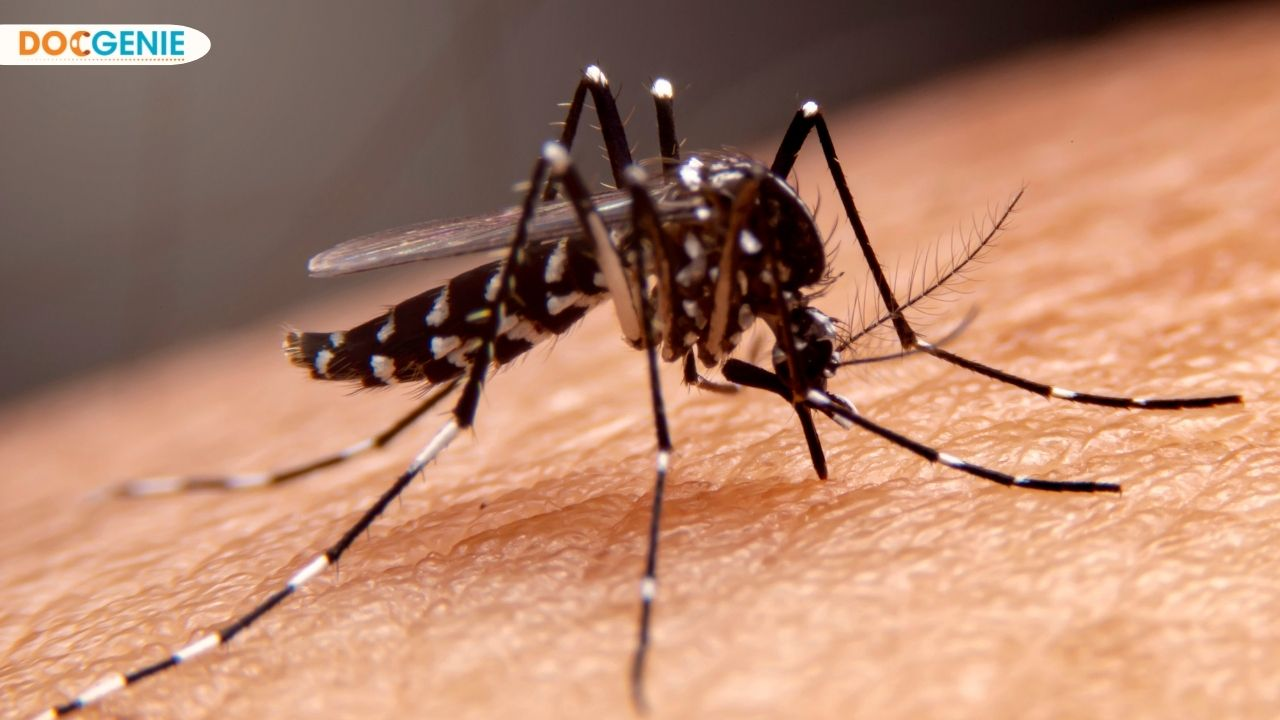Can Climate Change Increase Dengue Spread?
3 min read
By DocGenie , Published on - 15 March 2024
Written by Dr. Rachna Kucheria (MBBS MAMC New Delhi, MD AIIMS New Delhi, MD (Family Medicine) USC California), one of the best general physicians in Delhi NCR.
In recent years, the world has witnessed the devastating effects of climate change on various aspects of our lives. Among the many concerning consequences, the link between climate change and the spread of infectious diseases, such as dengue fever, has become increasingly evident. Dengue, a mosquito-borne viral infection, poses a significant threat to public health, and its transmission is being accelerated by the changing climate. This blog delves into the pressing issue of how climate change exacerbates dengue fever outbreaks and offers valuable insights into proactive measures to tackle this looming public health crisis.
Understanding the Dengue Threat:
Before delving into the climate change connection, it’s crucial to comprehend the severity of the dengue threat. Briefly discuss what dengue fever is, its symptoms, and the geographical distribution of the disease. Emphasize the disease’s impact on communities, economies, and healthcare systems.
The Intersection of Climate Change and Dengue:
Explore the relationship between climate change and dengue transmission. Discuss how higher temperatures, altered precipitation patterns, and increased humidity create favorable breeding conditions for mosquitoes, the primary carriers of the dengue virus. Highlight the role of urbanization and deforestation in creating new habitats for disease-carrying mosquitoes.
Rising Temperatures and Dengue Hotspots:
Examine regions that have witnessed a surge in dengue cases due to rising temperatures. Mention scientific studies and real-world examples to illustrate the correlation between temperature changes and increased dengue transmission. Provide statistics and data to reinforce the severity of the issue.
Changing Rainfall Patterns and Water Stagnation:
Elaborate on how erratic rainfall patterns influence mosquito breeding. Describe how heavy rainfall can lead to water stagnation, offering ideal breeding sites for dengue-carrying mosquitoes. Explain the connection between climate change-induced extreme weather events and dengue outbreaks.
The Impact on Vulnerable Populations:
Discuss the disproportionate impact of climate change and dengue fever on vulnerable populations, including low-income communities and developing countries. Analyze the socioeconomic factors that exacerbate the spread of the disease in these regions.
Adapting to the Changing Climate:
Offer a ray of hope by exploring adaptive measures to address the climate change-dengue nexus. Discuss successful initiatives taken by governments, NGOs, and communities to mitigate the impact of climate change on dengue transmission. Highlight the importance of international collaboration in fighting this global public health crisis.
Empowering Communities through Education:
Explain the significance of public awareness and education in combating dengue fever. Provide practical tips for individuals to protect themselves and their communities from mosquito-borne diseases. Encourage community engagement and participation in mosquito control efforts.
Conclusion:
In conclusion, the correlation between climate change and dengue fever presents a pressing public health crisis that requires urgent attention. As the planet continues to experience environmental shifts, the threat of dengue outbreaks looms large. However, by understanding the connection between climate change and dengue, implementing effective prevention strategies, and fostering global cooperation, we can work together to safeguard public health and create a resilient future for generations to come.
In case you have dengue fever/fever and are worried about the severity of the infection, consult a highly experienced general physician on DocGenie. All our GPs are available for online video sessions. With DocGenie you can get quality medical help from the comfort of your home, in a cost effective way.



